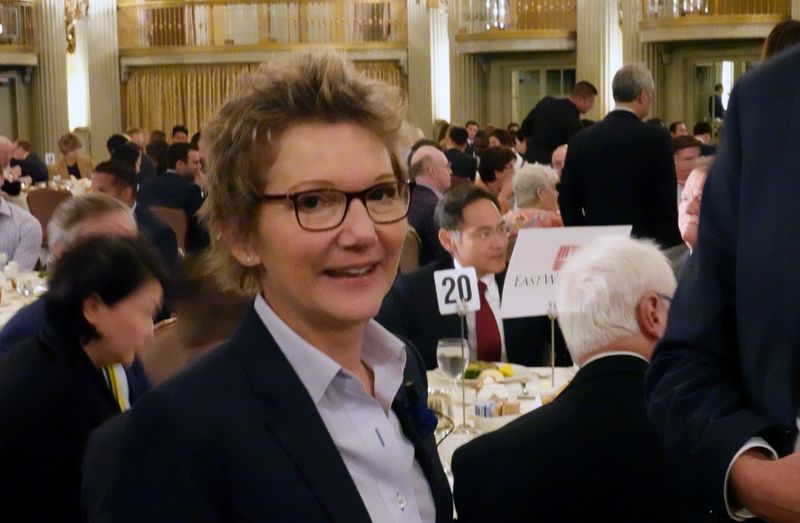By Michael S. Derby, Ann Saphir
(Reuters) -Federal Reserve policymakers, fresh from an interest rate cut this week, on Friday signaled their readiness to take a break from further reductions in borrowing costs next year as they take stock of progress to lower inflation.
San Francisco Fed President Mary Daly, who supported the U.S. central bank's decision on Wednesday to cut its benchmark overnight rate by a quarter of a percentage point to the 4.25%-4.50% range, and Cleveland Fed President Beth Hammack, who dissented against it, said the decision was a "close call."
And while Daly and New York Fed President John Williams both said they felt the central bank would likely resume the rate-cutting next year, neither suggested any need to hurry.
Fed policymaker projections released on Wednesday showed most see two quarter-percentage-point rate cuts in 2025. The U.S. central bank cut rates by 100 basis points in 2024, recalibrating monetary policy to a somewhat less-restrictive stance as inflation fell from much higher levels earlier in the year and the labor market cooled.
"Now I feel we have the recalibration phase behind us, and we're in the next phase, and that next phase is really looking at the incoming information," Daly said in an interview with Bloomberg Television.
Daly said she was comfortable with the two rate cuts next year that most of her fellow policymakers expect.
"I think we're in a great place, well-positioned" for what lies ahead," Williams said in an interview with CNBC. "We need to be data-dependent, and we have time to really assess the data, assess what's happening, and come to the best judgments based on the data, the outlook and the risks to achieve our goals."
Williams spoke shortly after the U.S. Commerce Department reported that inflation, based on the Fed's preferred measure, was 2.4% last month, less than what economists polled by Reuters had expected. The Personal Consumption Expenditures Price Index excluding volatile food and energy items, which the Fed uses to gauge underlying momentum in prices, rose 2.8%, in line with what Fed Chair Jerome Powell said he was anticipating when he embraced a "cautious" approach on further rate adjustments in his post-meeting press conference on Wednesday.

The data prompted financial markets to firm up bets on a Fed rate cut in March, with one more rate reduction seen as probable by October. Before the release of the report, traders had given a second Fed rate cut by the end of 2025 only about even odds.
In a statement explaining her dissent this week, Hammack said she felt the economy's strength argued against another rate cut at this time, and she wanted to hold the policy rate steady until there is more evidence that inflation is resuming its path toward the Fed's 2% goal.

